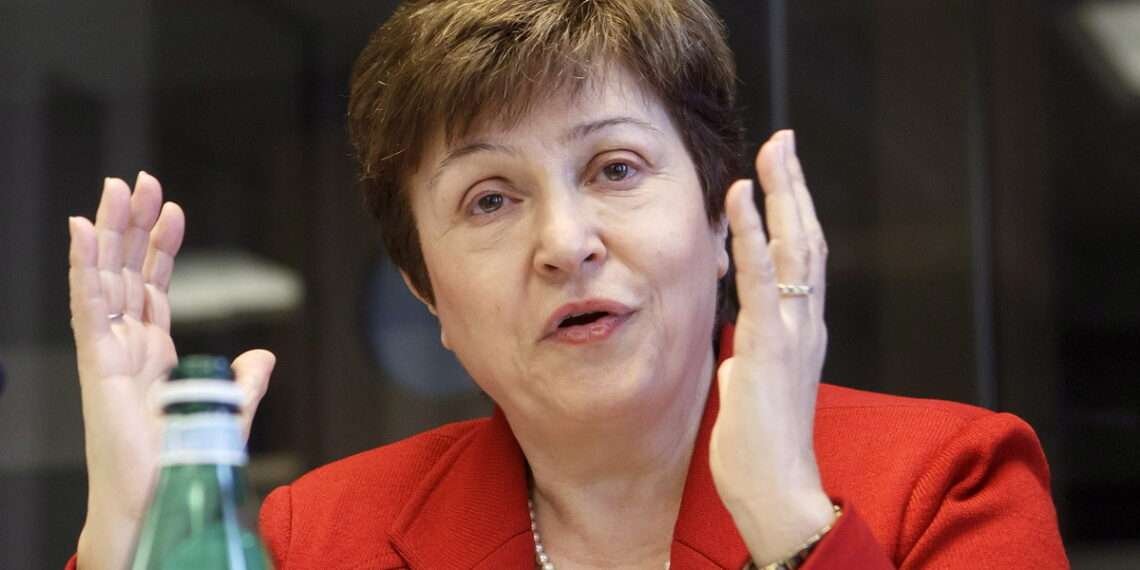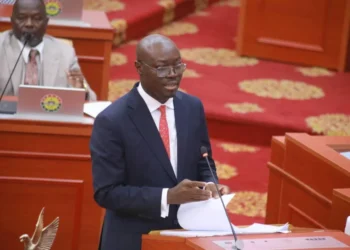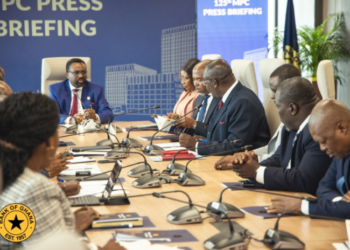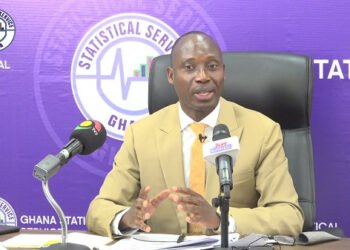The International Monetary Fund (IMF) has expressed its readiness to help Ghana lay a strong foundation for growth and prosperity in the near-term.
The Chair and Managing Director of the IMF, Kristalina Ivanova Georgieva-Kinova, disclosed this after meeting with Ghanaian Authorities to discuss how to address the country’s current economic difficulties.
According to the Bulgarian economist, the IMF’s decision to support Ghana stems from a ‘constructive meeting’ she had with Finance Minister, Ken Ofori-Atta and his team.
“Constructive meeting with Finance Minister Ofori-Atta & his team on Ghana’s economic challenges and the way forward. We are ready to do our part to help the authorities stabilize the economy, lay the ground for stronger growth & help the most vulnerable”.
Kristalina Ivanova Georgieva-Kinova
The is the second time the Fund has assured Ghana of its readiness to help address the difficulties and put the country back on a sustainable growth path.
After a visit to Ghana in July, the IMF Mission Chief for Ghana assured that “The IMF stands ready to assist Ghana to restore macroeconomic stability, safeguard debt sustainability, and promote inclusive and sustainable growth, and address the impact of the war in Ukraine and the lingering pandemic”.
The assurances from the IMF Chair and the Fund come at a time when the country’s economic outlook appears to be in distress.
Currently, Ghana’s currency, the Ghana Cedi, is consistently depreciating against the US dollar at a fast rate which many citizens are lamenting about. Inflation is above 30% and debt and its repayments challenges which led to downgrades by major Credit Rating Institutions have denied Ghana access to the capital market.
IMF package to be approved in quarter 4, 2022
Meanwhile, Fitch Solutions disclosed that it expects the International Monetary Fund to approve the $3 billion financial package for Ghana in the 4th quarter of this year.
The funds are expected to come in tranches as a balance of payment support with at least, a billion dollars expected to be released by the Fund by the end of the first quarter of 2023.
In its report dubbed ‘Ghana’s weak external position to strengthen on expected IMF deal’, Fitch Solutions highlighted that “despite a widening balance of payments deficit caused by large financial account outflows, we believe that an expected IMF deal will help to support Ghana’s external position in 2023”.
“An IMF financial package of $3.0bn, which we expect to be approved in quarter 4, 2022, should alleviate pressure on Ghana’s external position in 2023.”
Fitch Solutions
However, some analysts believe a Fund programme will not be approved until at least the end of quarter one 2023. This is because the Fund is yet to conduct a Debt Sustainability Analysis (DSA) on Ghana’s debt.
Net capital flows remain in negative territory
In quarter one, 2022, capital and financial outflows increased by 188.7% year-on-year to $690 million, driven by net portfolio reversals and outflows of Foreign Direct Inflows.
Combined with the country’s current account deficit, Fitch Solutions noted that this has resulted in an overall balance of payments deficit of $934 million in the first quarter of 2022, as against a deficit of $430 million in quarter one, 2021.
“We expect net capital flows to remain in negative territory over second-half of 2022, given deteriorating investor sentiment towards Ghanaian assets, as reflected by the currency sell-off and rising bond yields. At the same time, Ghana is unable to tap international capital markets to finance the deficit, and this is putting downward pressure on its foreign exchange reserves, which have fallen to $7.7 billion in June, from $9.8 billion in January [2022]”.
Fitch Solutions
Expects are of the view that a timely disbursement of the IMF package may help stabilize the economy, shore up reserves and reduce the deprecation of the Cedi, which is currently the second weakest currency in the world.
READ ALSO: John Mahama Expresses The Need For A New Chief Justice To Repair “Broken Image” Of Judiciary























